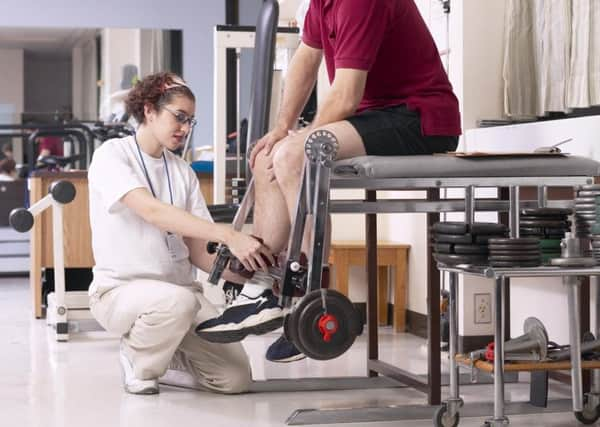£6m of payouts: Lancashire County Council’s compensation figures are highest in the country


These incidents resulted in the council making the largest overall payouts of an authority in England.
The highest payout was to a member of the county’s highway service who sustained multiple serious injuries at work in March 2007.
Advertisement
Hide AdAdvertisement
Hide AdHe was paid £962,383 in 2011/12, after a lighting column he was removing with a crane fell and struck him on the head and back, causing serious injury.
Today Ian Young, County Secretary and Solicitor for Lancashire County Council, said: “We would prefer it that no-one was ever hurt in an accident at work, but as a council with more than 30,000 staff there will be sometimes be incidents resulting in injuries, thankfully mostly minor.
“We’re always working to improve health and safety and reduce the potential for accidents.
“When the county council receives a claim for compensation it has to make a decision regarding its liability, and defend or settle the case as appropriate. This may lead to a compensation payment being made.”
Advertisement
Hide AdAdvertisement
Hide AdBut critics say the ‘extraordinary’ figure could mean the authority is not providing a safe environment or is paying out on spurious claims.
The catalogue of payouts also saw the authority also make three other payments over more than £200,000, including £213,160.80 to a highways worker in 2012/13 who suffered from Mesothelioma.
The claimant was employed from 1962 to 1974 and came into contact with asbestos as part of his work.
In 2013/14 the authority paid £275,310.36 to a schools-based employee who suffered Mesothelioma.
The claimant was employed from 1984 to 1986.
Advertisement
Hide AdAdvertisement
Hide AdAnd a payout of £800,000 was made to a teaching assistant in 2011/12 following an incident in 2002.
The Evening Post reported at the time that the assistant tripped over a wheelchair.
The employee, who cannot be named for legal reasons, dislocated a finger and suffered an injury to an elbow.
The elbow injury is believed to have led to the worker developing reflex sympathetic dystrophy, which is a malfunction of the nervous system that causes pain and related sensory abnormalities.
Advertisement
Hide AdAdvertisement
Hide AdAndy Silvester, campaign manager for the Tax Payers’ Alliance said: “This extraordinary figure means one of two things. Either the council isn’t providing a safe environment, or it’s paying out on spurious claims.
“Either way, the taxpayer is picking up the bill. The bill needs to come down, especially with Britain’s finances in such a mess.”
A member of staff from the learning disability team was awarded £79,202 after injuring their lower back after slipping on water. They got the payout in 2013/14 following the accident in 2007.
In the same period there were also 254 unsuccessful claims.
Advertisement
Hide AdAdvertisement
Hide AdMatthew Brown, a specialist serious injury lawyer at Irwin Mitchell’s Manchester office, said: “Serious injuries can have a significant impact on the lives of victims.
“It is vital local councils learn lessons from accidents at work and ensure that they comply with the latest health and safety regulations, which means carrying out risk assessments, identifying potential dangers workers are exposed to, providing appropriate training and ensuring equipment is maintained.
“All too often we see people suffer life-changing – and in some cases fatal – injuries as a result of issues which could and should have been avoided. It is vital that all employers take note of these incidents and ensure that the same unacceptable mistakes are not seen again.
“Large settlements such as this belie the fact that the victim has been seriously injured and will most likely not be able to work and will require substantial care and support through the recovery process and beyond.”